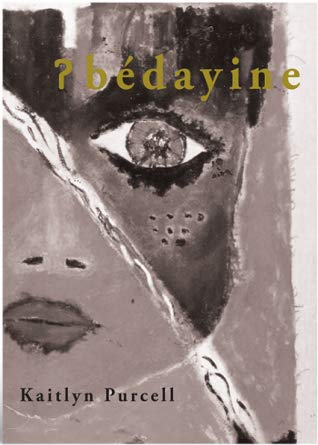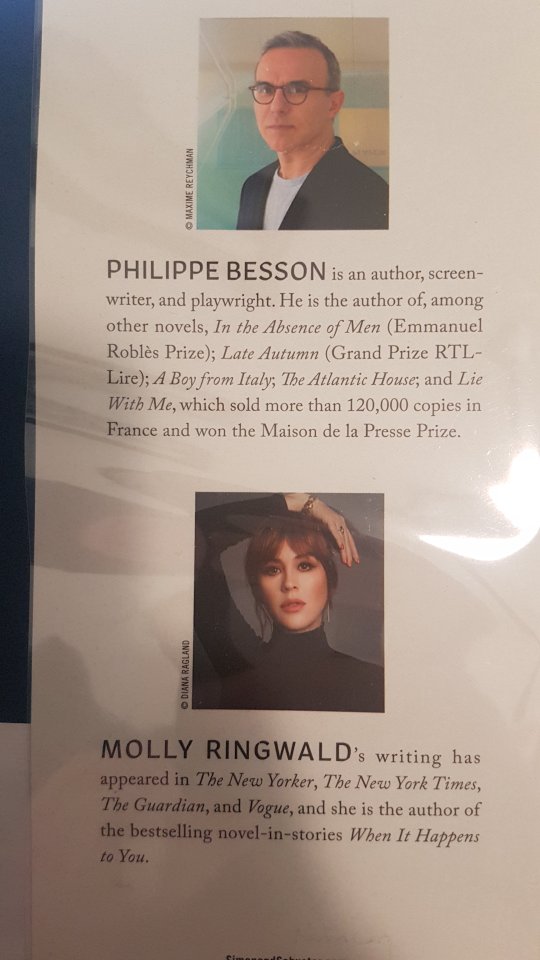Novellas in November 2019 Round Up #1
Halfway through #NovNov ’19, I don’t have as much to show for it as in previous years. Blame it on the Ducks. It has been an eclectic reading month so far, with a dud, a local success, a backlash, and a reading hangover that has me reaching for nonfiction to clear my head.




ʔbédayine by Kaitlyn Purcell
It’s not quite accurate to say this hits close to home, though it’s set in the city where I live, in the not-too-distant past. But it did hit me in a way I didn’t expect. Ronny and her friend Thana leave their small northern town to seek their fortune in the (relatively) big city, Edmonton. Their city lives are fueled by party drugs and alcohol and restricted by poverty and loneliness, but the girls promise early on to stick together – to “wash the puke out” of each other’s hair when the going gets rough, which is a perfect metaphor (and real logistical challenge) for teenage girl friendship.
“Small town girl moves to big city” is a tale as old as time, but Purcell resists the usual arcs and tropes. At times reading like a poem, at times like a novel(la) in stories, ʔbédayine is beguiling in its simplicity but not simple at all. Ronny doesn’t learn a big lesson or “find herself” but the story is still satisfying and begs to be reread.
I can’t really explain how she does it: with something like the rawness and vulnerability of Evelyn Lau’s Runaway, and the beauty and wisdom of Tracey Lindburg’s Birdie, but also something new and her own.
The Poor Clare by Elizabeth Gaskell
This book didn’t have a chance with me. A gothic tale of revenge set in 18th century Yorkshire? Unless your name is Emily Brontë, don’t even bother. That might be unfair of me, if not for the fact that Gaskell was a family friend of the Brontës, and that The Poor Clare was published ten years after Wuthering Heights, and a year after the last of Emily’s siblings died.
At 65 pages, calling this a novella is stretch. I gave Zadie Smith a pass for The Embassy of Cambodia (69 pages) because it’s really good. I’m feeling less charitable about this. It’s convoluted, full of Mary Sues (no Byronic heros here) and ends so abruptly I wondered if I was missing a page. I’d leave this one for the Gaskell completists.
This is Pleasure by Mary Gaitskill
Whether you choose to read 97 paper pages, listen to two hours of audio, or burn through one of your free New Yorker articles, this book has your #MeToo backlash (#MeToo critical?) needs covered. Told from the perspective of two Gen Xers, and written by a Boomer, you’ll find little Millenial wokeness here. Quin is a lecherous literary editor and Margot his female confidant. The story of Quin’s downfall is juicy, gossipy, nuanced, and uncomfortable.
If you’re Canadian, you can’t miss the parallels to the UBC Accountable/Steven Galloway case. I’m sure it’s not intentional. It’s just that these guys are all so much alike. As I like to say, they’re garden variety creeps. As Quin’s wife says:
“You’re not even a predator,” she said quietly. “Not even. You’re a fool. A pinching, creeping fool. That is what’s unbearable.”
Margot’s more interesting to me, and probably to you, especially if you’re a woman of a certain age. Is she complicit? Is she a traitor to younger women? A realist? A relic? Take an hour or two and see what you think.
Lie With Me by Philipe Besson, translated by Molly Ringwald
I think book hangovers, as a concept, are stupid. And yet, I finished this book a few days ago, and haven’t been able to bring myself to read any fiction since.
Let’s deal with the celebrity translation first. In my very inexpert opinion, the translation works well, and appears to be fairly literal, given the sentence structure (a lot of sentences that start with “it’s”, which I imagine begin with “c’est” in French). The language is very spare. I would love to get a hold of the French language version and see what I can make of it. My only possible gripe with Ms. Ringwald’s contribution is her author photo, which, come on.
The story itself is beautiful and devastating. I have some gripes in terms of the how the plot depends on coincidence, and in the hands of a lesser writer (or translator) this would be a real problem, but the writing is assured. Besson captures both the intensity of first love and the bittersweet nostalgia of middle age with ease and clarity:
It’s as if I never recovered from it; the inaccessible other, occupying all my thoughts…The source of this missing and longing can be found in this first desertion, this imbecilic burning love.
For all the drama surrounding adults and YA of late, here’s an alternative: a book about teenagers, that respects and honours the feelings of teenagers, that’s written for adults. A teenager could certainly read this, but I hope those who do revisit it when they’re older.

That YA link is interesting. I agree that the comments made were insulting to teenage girls, but as Graham argues, it’s telling that the YA adult community have seized upon this so violently, as if they were the ones who were insulted – adults don’t tend to defend teenagers so vigorously against stereotypes! I don’t like the identification of YA with teenagers, as if by criticising the former you’re criticising the latter – as you say, some adult fiction deals respectfully with teenage characters (and IMO, a lot of YA does not!) I’d like to read Lie With Me.
ʔbédayine sounds so up my alley, thanks for putting that on my radar. Small town girl moves to big city could be the title of my college-era set autobiography so I’m always so drawn to that setup.
So glad you enjoyed Lie With Me. I wanted to be able to resist its charms out of anti-celebrity-translation snobbery but my god, it broke me. THE LAST SENTENCE????? I was DESTROYED.
I love how shocking the idea of a book about teenagers written for adults is!!! I would read more of that, and I generally dislike YA. Interesting about the parallels between UBC Accountable and that novella, although I must agree with the quote, most of those men are fools who do this shit. They are idiots, and then just become sneaky idiots once they realize what they can get away with. They will always be fools though, always.
Here’s my contribution: Summer, by Edith Wharton: https://anzlitlovers.com/2019/11/25/summer-in-ethan-frome-and-summer-by-edith-wharton/
Thanks for keeping #NovNov going, I think it’s a great initiative:)
I loved Lie With Me and totally agree just because it’s primarily about when the narrator was a teen, that doesn’t make it YA. I found it lovely – and I loved the coincidence (I’m a Paul Auster fan after all and he’s big on coincidence). I’d love to read the Gaitskill, esp being a woman of a certain age…
Great shhare